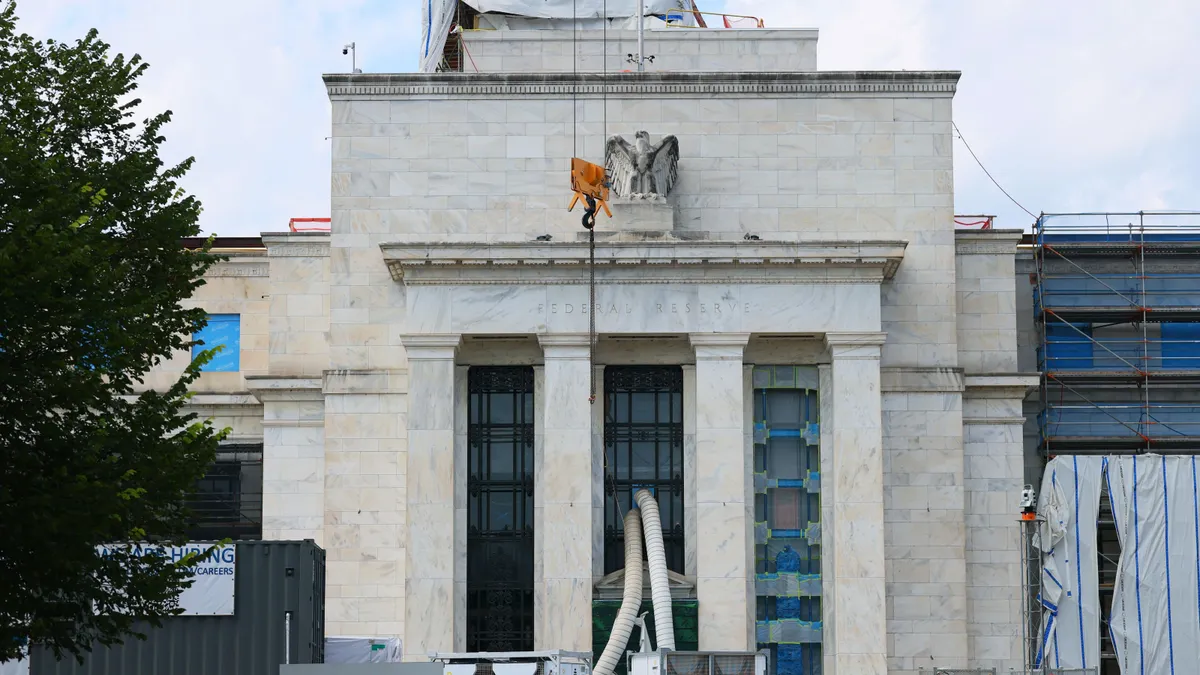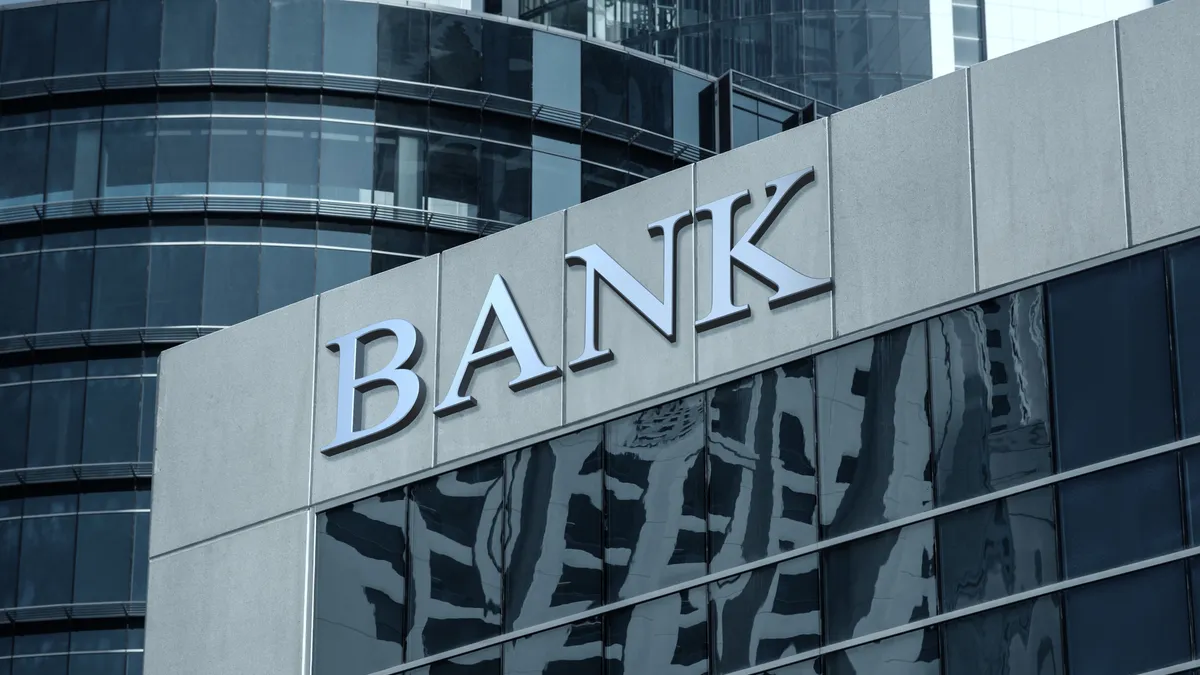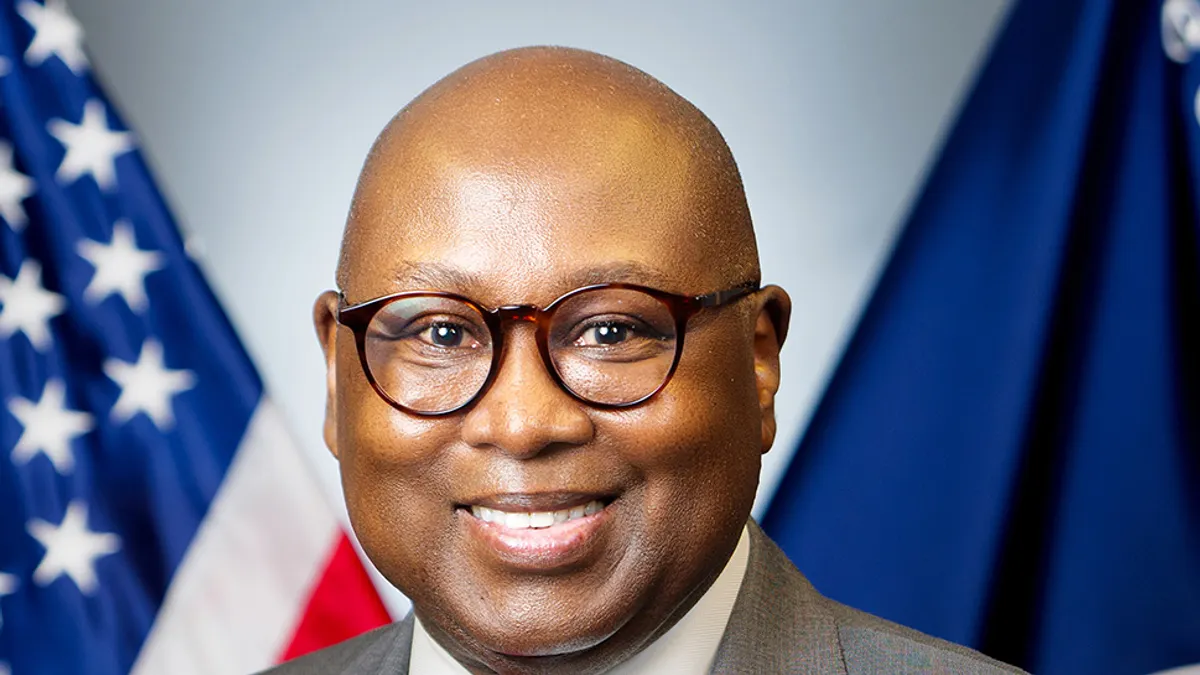A federal judge Wednesday halted enforcement of the Consumer Financial Protection Bureau’s open banking rule until regulators present a revised one, giving banks a major win.
The preliminary injunction enjoins enforcement until the bureau “has completed its reconsideration of the rule,” Judge Danny Reeves of the U.S. District Court for the Eastern District of Kentucky wrote in the order.
The time frame for a new rule is unknown, although the CFPB began its formal rulemaking process in August by publishing notice and soliciting public comment.
The ruling effectively halts a U.S. open banking framework, pending further action by the bureau, which had joined banks’ efforts to quash the rule as recently as five months ago when it called the rule “unlawful” in court filings. CFPB leaders subsequently adjusted their view in July and asked the court to stay the litigation, pending a revision.
The bureau did not respond to an email Wednesday seeking comment on the injunction or the pace of its rulemaking. The agency is sifting through the 14,000 public comments it collected from its request for public input on the new rule.
Banking groups that sued in October 2024 to block the rule said they were “grateful” for the court’s decision.
“This is a common-sense procedural step that doesn't interfere with the rulemaking process but ensures banks won’t be forced to invest time and resources preparing for a rule that is currently being rewritten,” the Bank Policy Institute, the Kentucky Bankers Association and Forcht Bank said Wednesday in a joint statement.
Fintech trade groups disagreed. The Financial Technology Association, which was allowed to intervene this year as a defendant in the banks’ lawsuit, said it’s “exploring all options, including an appeal.”
“Most Americans today rely on open banking connectivity to access apps and services and manage their financial lives, a foundational right in today’s digital age,” FTA CEO Penny Lee said in an email.
Likewise, another fintech organization echoed those concerns. The American Fintech Council said it “respectfully disagrees” with the court’s decision.
“Halting implementation of the open banking rule delays the promise of a system where people can securely access and freely share their own financial data to get better, fairer products.” Ian P. Moloney, an AFC senior vice president and head of policy and regulatory affairs, wrote Wednesday in an emailed statement.
The American Bankers Association called the ruling “a necessary pause for the Bureau to engage meaningfully with stakeholders and address the rule's significant flaws while ensuring banks don’t have to invest time and resources to comply with an overbroad and legally flawed rule that is actively undergoing substantial revision.”
Overshadowing the rule’s future, CFPB Acting Director Russ Vought on Oct. 15 cast doubt on the bureau’s fate, suggesting its end was near.
“We don’t have anyone working there except our Republican appointees and a few career [employees] that are doing statutory responsibilities while we close down the agency,” Vought said on The Charlie Kirk Show. “We want to put it out – and we will be successful probably within the next two, three months.”
Vought, who also leads the Office of Management and Budget, has been trying to dramatically downsize the CFPB’s workforce and mission since he was appointed acting director in February.
Vought’s comments, and the agency’s prior stance toward the rule’s legality, makes it unclear when a revised rule might be forthcoming, said Adam Maarec, an attorney with McGlinchey Stafford, who advises banks and fintechs.
“With CFPB leadership having a stated intention of shuttering the agency in the next few months, and ongoing efforts to reduce CFPB staffing, it is unclear when – or if – a reconsidered rule will be proposed and finalized,” he wrote in an email. “If the CFPB’s reconsideration or final rules take months or years to complete, the rule would remain enjoined in purgatory during that time.”
The injunction carries no practical effects until June 2026, when the initial compliance dates were to take force, said Stewart Watterson, a strategic adviser at Datos Insights in the firm’s retail banking and payments group.
“The most significant unknown about the future concerns the fees banks may charge aggregators,” Watterson wrote in an email. “If banks begin charging aggregators for data between now and June, that is one place where it could have an impact. Only the largest banks are up and running on providing data, and they will most likely continue to wait and see, which is what we will all have to do.”
Maarec said it’s likely that the injunction will be appealed “and the litigation will grind on, leaving the market to address the myriad policy issues addressed by the final rules in bilateral agreements.”





















